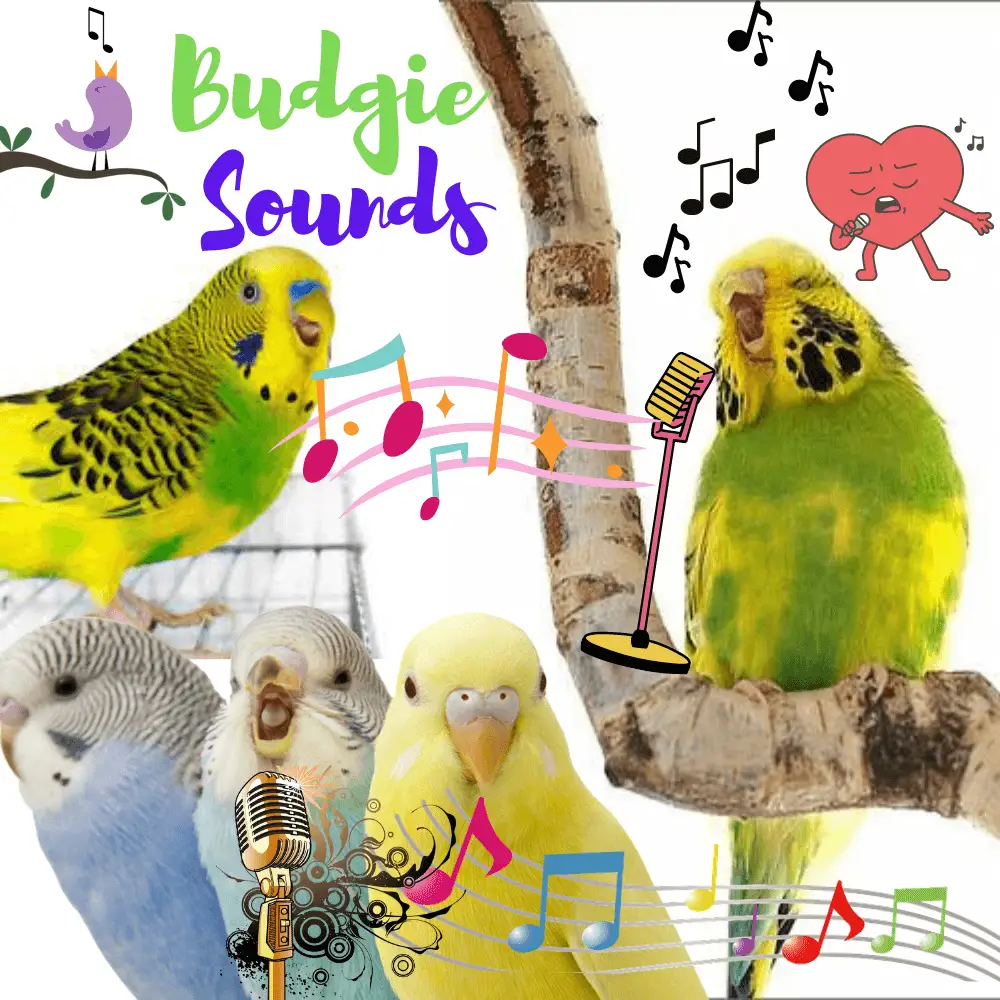
Are budgies noisy? and what are Budgie sounds? 9 noises explained: Owning a budgie has nothing to do with a cat or dog. They require special attention and research to keep them healthy. One aspect of owning a budgie is noise. I wanted to know how noisy they are and why they generate so much noise. Here’s what I discovered.
Are budgies noisy? Yes, budgies are noisy. They are among the noisiest birds in the parrot family.
It is important to know why your budgie makes a lot of noise. Read on to learn more about budgies and the sounds they make.
Are budgies silent at night?
You may be more concerned about the noise they produce at night. Will they interrupt your restful sleep? The good news is that budgies are usually silent at night. They only make sounds if they are frightened by something.
Otherwise, they also sleep at night. This is one of the reasons why some owners like to keep a blanket or towel above the bird’s cage. This simulates the night and can help birds stay calm and quiet. Without light, budgies will think it’s time to go to sleep.
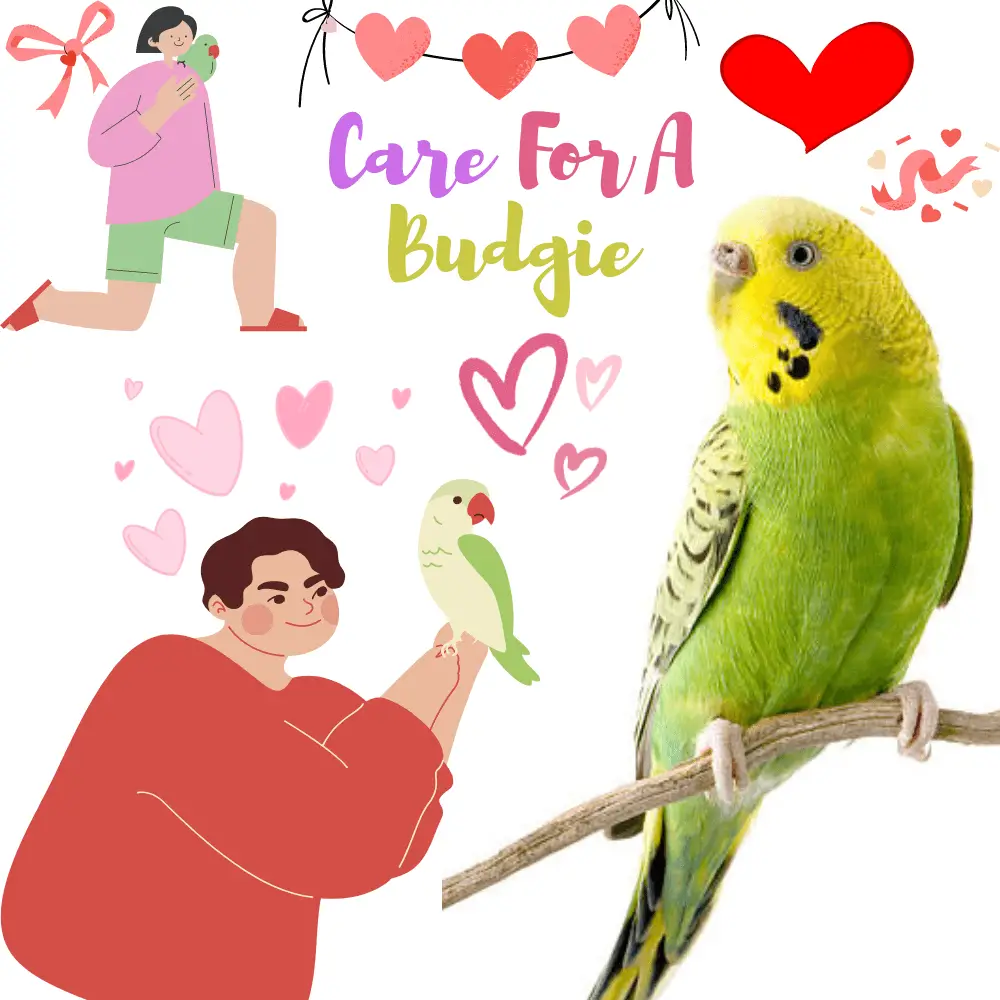
Do budgies use their sounds to communicate?
Absolutely. Parakeets are actually very intelligent. Studies have shown that the intelligence of budgies is comparable to that of a 7-month-old baby. They are able to distinguish the meaning of different sounds and noises.
Some sounds may indicate that a predator is close. Others may signal that they are ready to mate. Some sounds are a mystery, but they may indicate that budgies are just communicating with each other.
Regardless, their level of intelligence suggests that when a budgie makes a noise, it’s usually for a specific reason.
Sounds Budgies Make And What They Mean
This is the meaning of all different budgie sounds and vocalizations:
Chattering
Meaning Content usual budgie noise
Whistling
Happy, listening to music
Beak Grinding
Content, relaxed
Trilling
Happy and excited
Singing
Extremely happy, singing along
Warbling
Wooing a mate/looking for attention
Muttering
Sleepy and content
Talking
Excited and attentive
Mimickery
Excited and attentive
Contact Calls
Worried, checking up on you/other budgies
Chiding
Warning, asking to back off
Squawking
Surprised, spooked
Screaming
Scared, in danger
Why does my budgie make noise?
The main reason your budgie screams is that she is scared. Most budgies scream at least once a day. Sometimes they even scream at night. This noise is a loud explosion of sound that can be heard several meters away.
One of the reasons your budgie may utter shrill cries is that it perceives a predator. This predator is not always real. Parakeets sometimes see shadows and think the worst. Sometimes they even wake up in the middle of the night, confused, and scream because they think a predator is nearby.
Sometimes a stranger, a pet, or even a noise can be perceived as a predator. There are several ways to calm your budgie. The first is to talk to him softly and in a soothing way. As she listens to you, she will be soothed by the sound of your voice.
Another solution is to place a pet blanket on the cage. By covering it, you allow it to feel safe. The predator is no longer able to see them and they cannot see the predator.
Another reason why budgies can utter shrill cries is mating season. Hormones flow into their bodies. In order to make their presence known to other budgies, they emit a huge cry. Unfortunately, there is not much you can do to prevent this type of screaming.
Once the mating season is over, your budgie will become a little quieter.
One of the most distressing reasons why your budgie screams is that she is injured. You may be surprised to learn that budgies can get hurt quite easily inside a cage. If they are still able to fly, they may attempt to fly to one side of the cage and injure their wings in the process.
They also like to climb along the walls of the cage. If they fall, they can also injure themselves.
Parakeets do not always like darkness. If they wake up in the dark, they can panic and hurt themselves.
If they scream, it’s because they’re in pain. You can help them by taking them carefully to your veterinarian. Once their wound heals, they should not bawl as much.
Finally, your budgie may scream because she is hungry or thirsty. If you forgot to feed her or if she is simply very hungry, she will not hesitate to let you know. They may sometimes refuse to eat or drink if their bowls contain bird droppings. They may call you to clean their bowls.
Budgie sounds
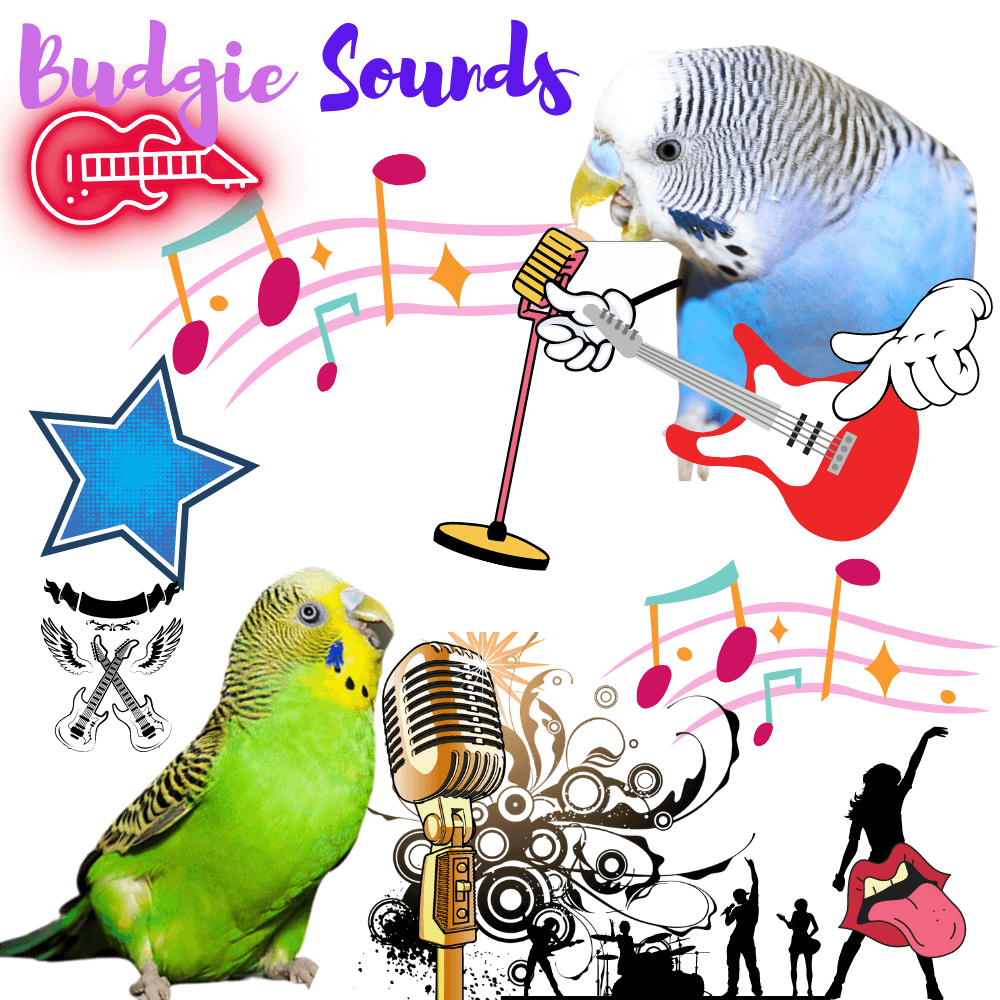
Why does my budgie hiss?
You may think that whistling is a sound reserved for snakes. This is not the case with parakeets. They can produce a surprising hiss that almost makes it look like they’re whistling someone. If your budgie makes this budgie sound, it usually indicates that something or someone is closer to her than she would like.
This is a warning budgie sound.
This frequently happens in environments where there are too many birds in a small space. Overpopulation generates a lot of hissing from all birds. They love their personal space. You can reduce the hissing sound by buying a larger cage for them or separating them into each of their cages.
Sometimes your budgie may even whistle at a passing dog, cat, or family member. It just means she doesn’t want to be approached right now.
Why does my budgie sing?
Parakeets are not songbirds. They are part of the parrot family. As such, they are not the best singers. While they can produce an impressive range of budgie sounds, the melody they produce isn’t exactly a great tune.
Fortunately, if your budgie is singing, it means that she is happy. This is a way for budgies to express their joy. It is not uncommon for budgies to sing together if placed in the same enclosure.
Since they are part of the parrot family, you can even get them to imitate some of the songs or whistles you teach them.
Why is my budgie chatting?
If your budgie sounds exceptionally vocal, it’s likely that she’s chatting. This is a sound by which a budgie makes a multitude of noises or uses words you have taught her, to show her vocal abilities. This happens when the mating season is active.
Male parakeets chatter in order to impress female parakeets. If your male budgie is all alone, she will probably try to impress her own reflection with a mirror.
It may be one of the funniest budgie sounds a budgie makes, but you might enjoy it if you’ve taught it words. Their absurd conversation can be a joy to listen to.
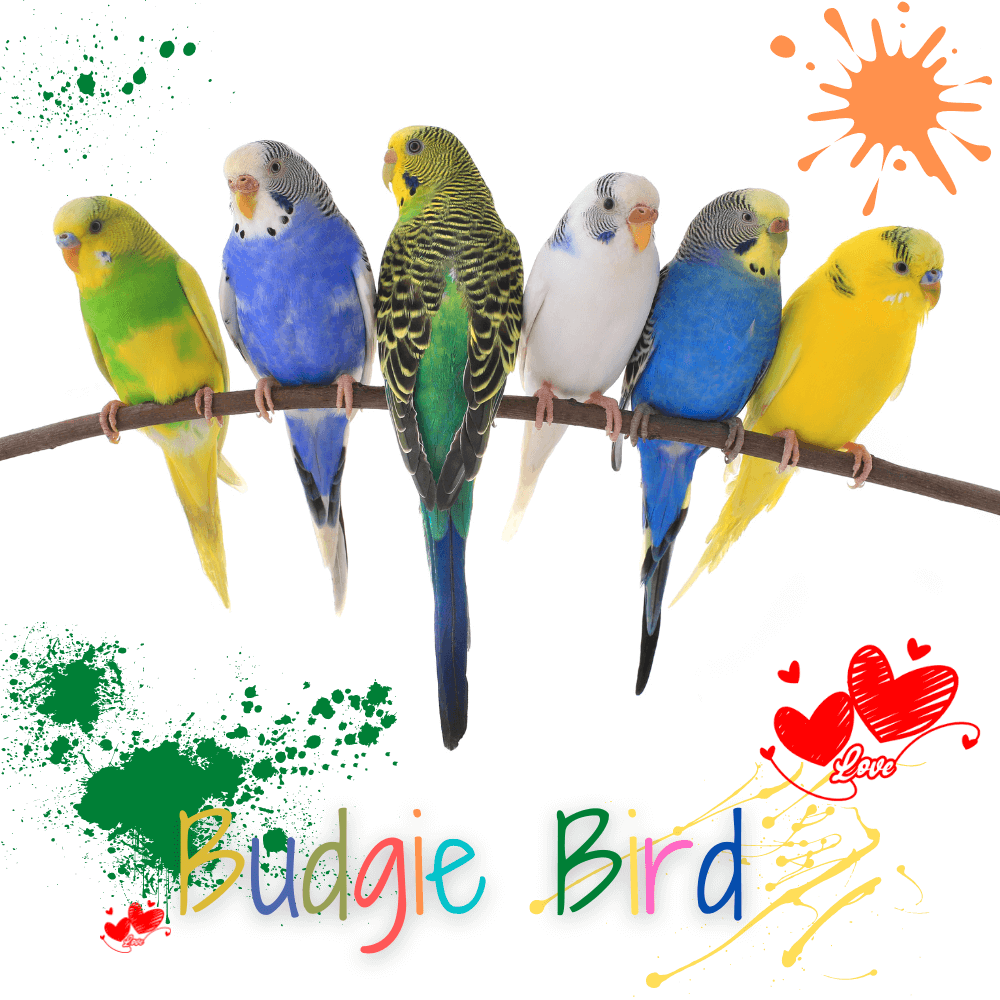
Why is my budgie chirping so loudly?
One of the most common sounds made by your budgie is chirping. It can be a calm, rhythmic sound or a loud, repetitive noise. She can even compose several different melodies.
There are several reasons why your budgie may chirp loudly. The first is that she is happy. This is another way for budgies to show their joy. They have fun and want everyone to know.
Another reason why the budgie may chirp loudly is that its food dish is empty and it is hungry. Instead of screaming, she may simply chirp loudly in your direction to get your attention.
You can also hear them chirping if they feel lonely and want your attention. This usually happens if you enter the room for a long time. They may be eager to socialize with you. Therefore, they chirp to get your attention. It’s always a good idea to spend time with your budgie and communicate with her. She needs it, and you will definitely feel closer to her.
Why does my budgie emit unfortunate tweets?
Sometimes their tweets can actually be unfortunate tweets. The main difference between the two is that unfortunate tweets are usually quite loud. In addition, they do not always stop until the problem is solved.
One of the reasons your budgie may make unhappy tweets is that it lacks food or water. Once you solve this problem, she should calm down.
Another problem that may justify their unfortunate tweets is that their swing or perch is dislodged. He may not be able to reach it or he may be stuck. Repairing the swing or perch can silence them.
It may also be that another budgie does not know. They may want to talk with the budgie. To get his attention, she makes unfortunate tweets.
If their tweets get louder or don’t stop, it may indicate a serious problem. They may be afraid of a real or perceived predator. They may have problems. They can be injured. By examining the sound, you could save your budgie’s life.
Canbudgie talk? yes, The budgie can learn to mimic human speech. and which parrot can speak? and how and why budgie parakeets talk also why do budgie eyes dilate when they speak? and what is the cheapest parrot that speaks?
Make your budgie parakeet talk
Why does my budgie’s beak squeak?
A strange sound that your budgie may make is a chewing or grinding sound. It is actually a squeak of the beak. This is sometimes necessary to help keep their beak healthy. It’s also a way to show she’s happy.
It’s similar to the purr of a cat.
The sound is produced by rubbing the two halves of their beaks against each other.
Are budgies noisy? How do I keep my budgie quiet?
How do I keep my budgie quiet?
If your budgie makes too much noise, you can use a few methods to silence her.
One of the most effective is to lay a blanket partially on the cage. It does not completely darken the cage. They will not fall asleep. On the contrary, it will make them feel safe. If you really want your budgies to sleep, you can cover the entire cage with the pet blanket.
Another method is to make sure their cage is large enough. If they share space with another bird, the size of their cage is important. It must be large enough to give each budgie sufficient space. Otherwise, they may start fighting and yelling at each other.
Budgie sounds
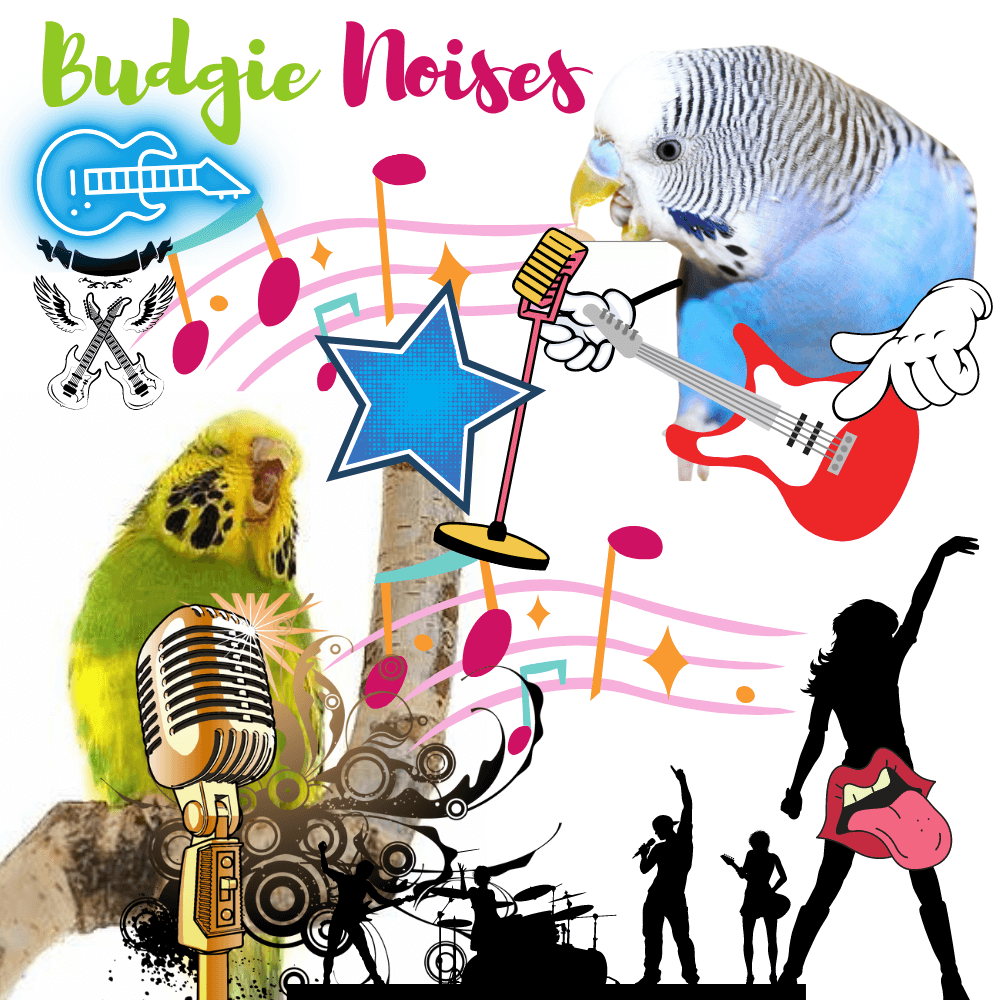
My budgie screams a lot: communication and hyper-vocalization
Budgies are naturally expressive animals, which use different sounds to communicate with their fellow humans, but also with their human companions. In some cases, their cries become exaggerated, going so far as to turn into real nuisances that must be remedied.
Having a budgie at home that screams all day long is never pleasant. If your companion is primarily looking to interact with you, he may develop a severe behavioral problem and express his discomfort through incessant screaming.
Understanding the behavior of his budgie: why does he scream?
Budgies simply cry out to communicate with you, as they would in nature with their congeners. Calls are the main mode of expression for many gregarious species. Parakeets and parrots use them to notify members of their group of the presence of food, to warn them of the approach of a predator, or to ask them where they are. These exchanges are essential to the well-being of the budgie parakeet.
The communication code of budgie: a complex vocalization system
Budgies emit all kinds of vocalizations, the meaning of which can vary according to species and situations: chirping (often an expression of pleasure during games, mutual grooming, or cuddles), songs (male who seeks to seduce a female or to delimit her territory), chirping, whistling, imitation speech… The cries, much less pleasant for our ears, are also an integral part of this repertoire of sounds.
Hyper-vocalization: when excessive budgie screaming becomes a behavioral disorder
A big problem
As you can see, it is innate for a budgie to scream: it is therefore impossible to prevent it permanently. But it happens that an individual shout excessively loudly, throughout the day, sometimes even forgetting to feed or drink. This is hyper-vocalization, a behavioral disorder that particularly affects psittacines. These species usually possess an extremely powerful hoarse or nasal voice, this phenomenon can quickly become unbearable.
Causes
Hyper-vocalization is generally observed in dependent budgie parakeets: very close to their master, they can’t stand loneliness and start bawling as soon as they lose sight of it. Boredom is another explanation: an animal that receives no attention and has no way to distract itself screams for the attention of its owner. Bad habits are also occasionally to blame: a budgie parakeet that is free almost all the time will scream as soon as you try to lock it in its cage. Just like a subject who is systematically out at a fixed time (when you wake up or return from work for example), and who will sound the alarm if you are late compared to his habits.
What to do?
The best solution is to ignore the budgie parakeet when it screams, even if it is difficult and requires a lot of patience. Your pet should not get what he wants, which is your attention. Do not look at him and change rooms, waiting for him to be silent. Do not hit him under any circumstances, even at the end of his nerves. Do not shout at him: he will consider these actions as a response on your part to his requests. On the other hand, you can from time to time indicate your disapproval with a dry “No” and a firm look, which your budgie parakeet is quite able to understand. It’s important when he’s calm, whistling or talking, to give him your time: talk to him, play with him and reward him with his favorite treats and caresses. He will understand by force what behaviors are acceptable or not. Provide him with various parrot toys so that he can keep busy in his cage and wood and toys, or a partner if possible.
Cries of alarm and panic
However, hyper-vocalization should not be confused with warning and panic calls, which are quite loud, high-pitched, and unpleasant sounds, commonly accompanied by a ruffling of the plumage. Your budgie does not emit them continuously, but only when it is actually frightened by something. If you hear this type of cry, check that your pet is well and that no danger threatens it.
My budgerigar cries out in the morning and evening: Some parakeets engage in fairly loud vocalizations at sunrise and sunset, for no apparent reason. This is not a behavioral problem: your budgerigar is just replicating the natural attitude of its wild cousins, who have an instinctive need to shout and sing at dawn and dusk. Dr. Elisabeth Tané, veterinarian.
Final Thoughts
Parakeets use noises to communicate. They can sometimes be noisy if they feel in danger or to attract the attention of a companion. A suitable cage can help reduce noise and ensure a happy and healthy life for your budgies. Alternatively, you can have fun with your budgie by teaching him to use words.
Budgie Sounds for Lonely birds to make them happy
SOURCE:Budgie Nation




















